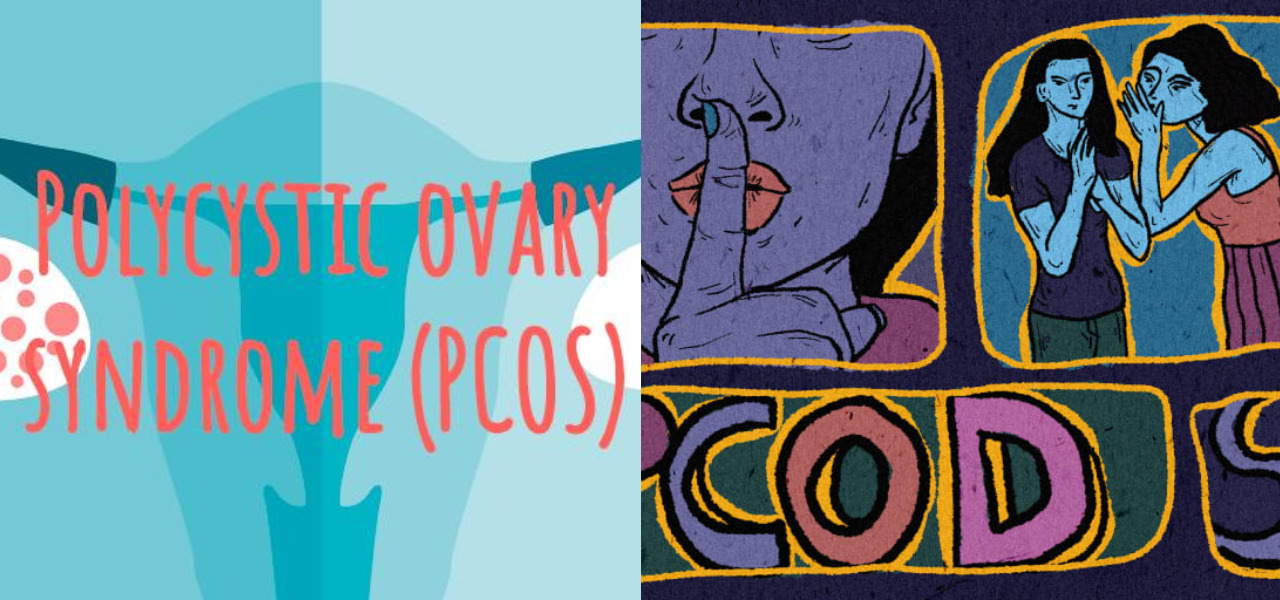Disclaimer*: The articles shared under 'Your Voice' section are sent to us by contributors and we neither confirm nor deny the authenticity of any facts stated below. Parhlo will not be liable for any false, inaccurate, inappropriate or incomplete information presented on the website. Read our disclaimer.
This article was originally submitted by Saba Sarfaraz
Growing up in a desi household, reproductive health and hygiene have always been an awkward topic; of conversation for the people. Whether it’s a hormonal disorder or physical health issues. It is stigmatized to such an extent that women themselves never want to talk about it, even if it means risking their own health and hygiene.
Polycystic ovary syndrome (PCOS), is a very common condition that a lot of women live with. It’s also an extremely confusing condition since everyone’s cases, symptoms and struggles are different.
PCOS is a complex condition characterized by; elevated androgen levels, menstrual irregularities or small cysts on one or both ovaries. The common symptoms of PCOS include; irregular or no period at all, excessive hair growth, acne (oily skin), and hair loss from the scalp. However, if any girl is experiencing any of these symptoms, she should get treatment immediately because PCOS can lead to lifelong problems such as; Type-2 diabetes, sleep apnea, high cholesterol and depression.

Majority of the girls get diagnosed with PCOS after they’re married; when they’re planning to get pregnant and it gets difficult for them.
However, In Pakistan, it directly gets related to fertility hence ignoring the other mental and physical health issues related. Before writing down this article I have talked to a bunch of women about their struggles with PCOS. Most of them were completely unaware of the alterations needed to be implemented in their diets and lifestyle. Irrespective of the fact that your parent is educated or not, a lot of girls around us are uncomfortable; to talk to their mothers about reproductive health especially in their teenage.
Despite being an educated parent, it gets awkward to talk about what’s wrong and what should be done; to make it right, because again PCOS in desi culture has been linked with pregnancy & has become a TABOO. However, around one in four women of Asia suffers from PCOS. Therefore, we need more people to talk about it and break the taboo.

The doctors need to realize that instead of prescribing medications, they should also consider making the patients aware; of the change needed to be altered in their diets rather than making them curious about their condition. Once a patient gets to know what and why something is happening, they won’t feel worried.
Also, read Instead Of Making “Periods” A Taboo, Let’s Educate And Facilitate Our Daughters!
When a person realizes that something unusual is happening and talking about it would get awkward; their anxiety gets worse.
I would urge every woman suffering; from any kind of reproductive health problem to visit a doctor before they self-medicate or welcome; the unnecessary amount of anxiety by keeping it to themselves. We need to normalize talking about reproductive health and understand that PCOS; or any other reproductive problem, is nothing to be ashamed of.
I would advise all the women going through any struggles; related to health, to be more confident, brave and aware of their conditions fully without being ashamed of anything.







